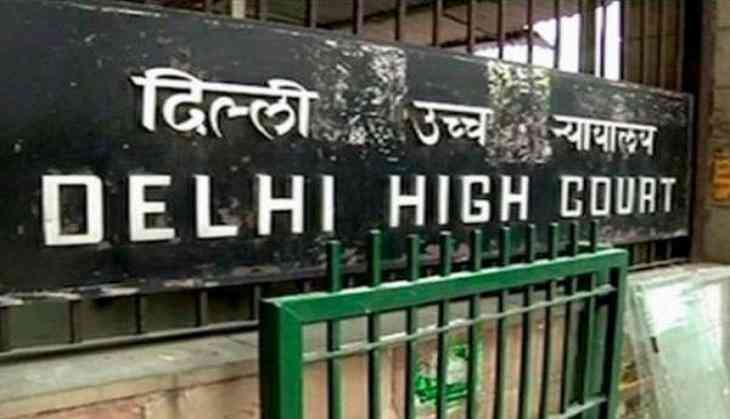
"It seems, that in its anxiety to suppress dissent, in the mind of the State, the line between the constitutionally guaranteed right to protest and terrorist activity seems to be getting somewhat blurred," the Delhi High Court said on Tuesday while granting three activists who were arrested under the stringent Unlawful Activities (Prevention) Act, in connection with north-east Delhi violence case.
The court made the remark as it granted bail to three activists -- Devangana Kalita and Natasha Narwal from the rights group Pinjra Tod and Jamia Millia Islamia student Asif Iqbal Tanha - - who were arrested under the stringent Unlawful Activities (Prevention) Act, in connection with north-east Delhi violence case.
"We are constrained to say, that it appears, that in its anxiety to suppress dissent and in the morbid fear that matters may get out of hand, the State has blurred the line between the constitutionally guaranteed 'right to protest' and 'terrorist activity'. If such blurring gains traction, democracy would be in peril," a Division Bench of Justices Siddharth Mridul and Anup Jairam Bhambhani said while granting bail to Pinjra tod activist Devangana Kalita.
The court said that as expatiated by the Supreme Court in the precedents cited above, protests against Governmental and Parliamentary actions are legitimate; and though such protests are expected to be peaceful and non-violent, it is not uncommon for protesters to push the limits permissible in law.
"The making of inflammatory speeches, organising chakkajams, and such like actions are not uncommon when there is widespread opposition to Governmental or Parliamentary actions. Even if we assume for the sake of argument, without expressing any view thereon, that in the present case inflammatory speeches, chakkajams, instigation of women protesters and other actions, to which the appellant is alleged to have been a party, crossed the line of peaceful protests permissible under our Constitutional guarantee, that however would yet not amount to commission of a 'terrorist act' or a 'conspiracy' or an 'act preparatory' to the commission of a terrorist act as understood under the UAPA," the court noted.
"Therefore, having bestowed our anxious consideration to the allegations contained in charge-sheet dated September 16, 2020, and the material adduced therewith, we do not think that the accusations made against the appellant under sections 15, 17, and/or 18 of the UAPA are prima facie true," the court said.
"In view thereof, the stringent conditionalities contained in section 43D(5) of the UAPA will not apply; and the appellant's (Kalita) bail plea would need to be considered on the general principles of bail enunciated above," the court said.
"Since the subject, charge-sheet has been filed and cognisance of some of the offences has been taken, but charges are yet to be framed by the learned Special Court; and there are around 740 prosecution witnesses, including public witnesses, protected witnesses, and police witnesses, who would have to be examined during the trial, there is hardly any doubt that the process will take a very long time since not even one witness has so far been examined. The prevailing pandemic and the consequent truncated functioning of courts will only add to the delay," the High Court said.
In three separate orders, the Delhi High Court has granted bail to Kalita, Narwal and Iqbal Tanha.
Pinjra Tod activists Kalita and Narwal were arrested in the subject FIR on May 29, 2020, and Tanha was arrested on May 19, 2020.
While releasing them on bail, the court imposed various conditions on them. Among them, the trio was directed to furnish to the Investigating Officer/SHO a cellphone number on which the appellant-accused may be contacted at any time and shall ensure that the number is kept active and switched on at all times.
The appellant shall ordinarily reside at her place of residence as per the trial court records and shall inform the Investigating Officer if she changes her usual place of residence, to surrender her passport and not travel out of the country without prior permission.
The court directed them not to contact, nor visit, nor offer any inducement, threat, or promise to any of the prosecution witnesses or other persons acquainted with the facts of the case. It also asked them not to tamper with evidence nor otherwise indulge in any act or omission that is unlawful or that would prejudice the proceedings in the pending trial.
(ANI)
Also Read: Delhi HC grants bail to Devangana Kalita, Natasha Narwal, Asif Iqbal Tanha in UAPA case


